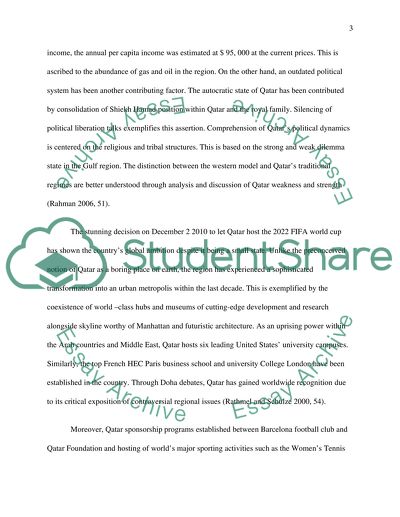Cite this document
(Comprehension of Qatars Political Dynamics Case Study, n.d.)
Comprehension of Qatars Political Dynamics Case Study. Retrieved from https://studentshare.org/politics/1586212-the-political-and-economical-role-of-qatar-in-the-middle-east-and-the-arab-world
Comprehension of Qatars Political Dynamics Case Study. Retrieved from https://studentshare.org/politics/1586212-the-political-and-economical-role-of-qatar-in-the-middle-east-and-the-arab-world
(Comprehension of Qatars Political Dynamics Case Study)
Comprehension of Qatars Political Dynamics Case Study. https://studentshare.org/politics/1586212-the-political-and-economical-role-of-qatar-in-the-middle-east-and-the-arab-world.
Comprehension of Qatars Political Dynamics Case Study. https://studentshare.org/politics/1586212-the-political-and-economical-role-of-qatar-in-the-middle-east-and-the-arab-world.
“Comprehension of Qatars Political Dynamics Case Study”. https://studentshare.org/politics/1586212-the-political-and-economical-role-of-qatar-in-the-middle-east-and-the-arab-world.


